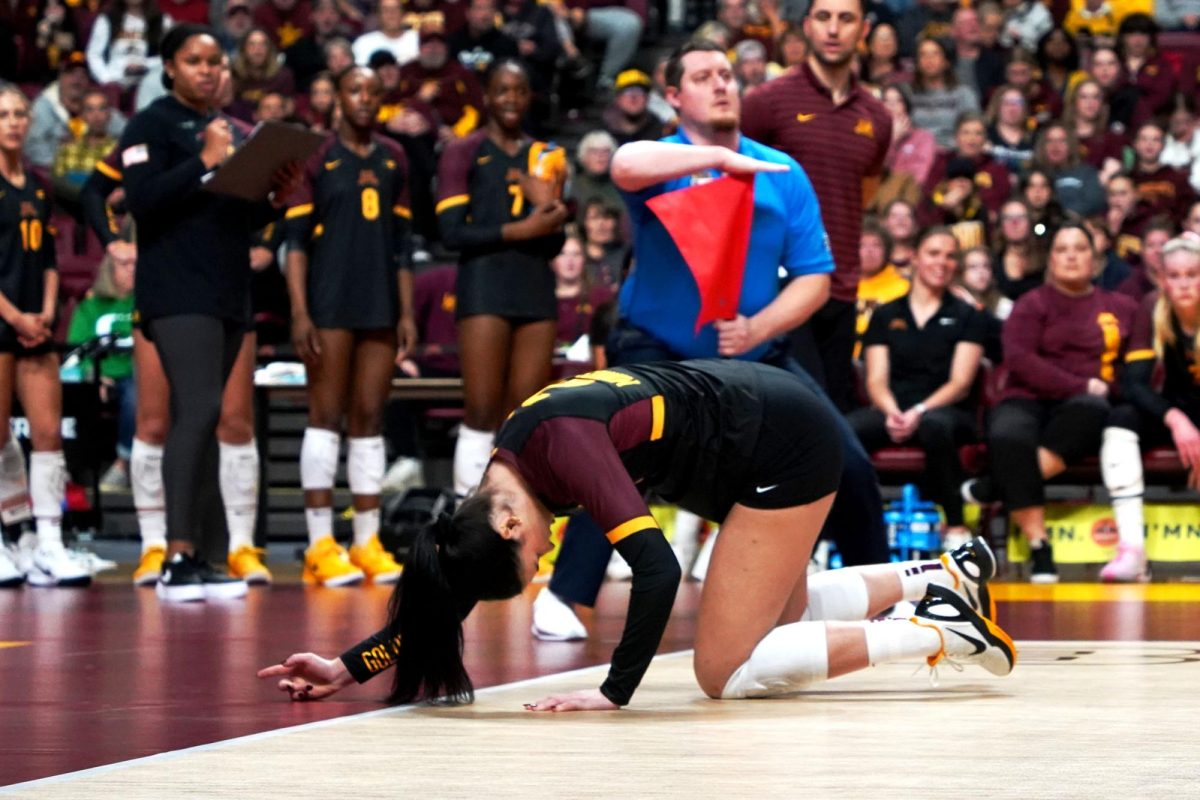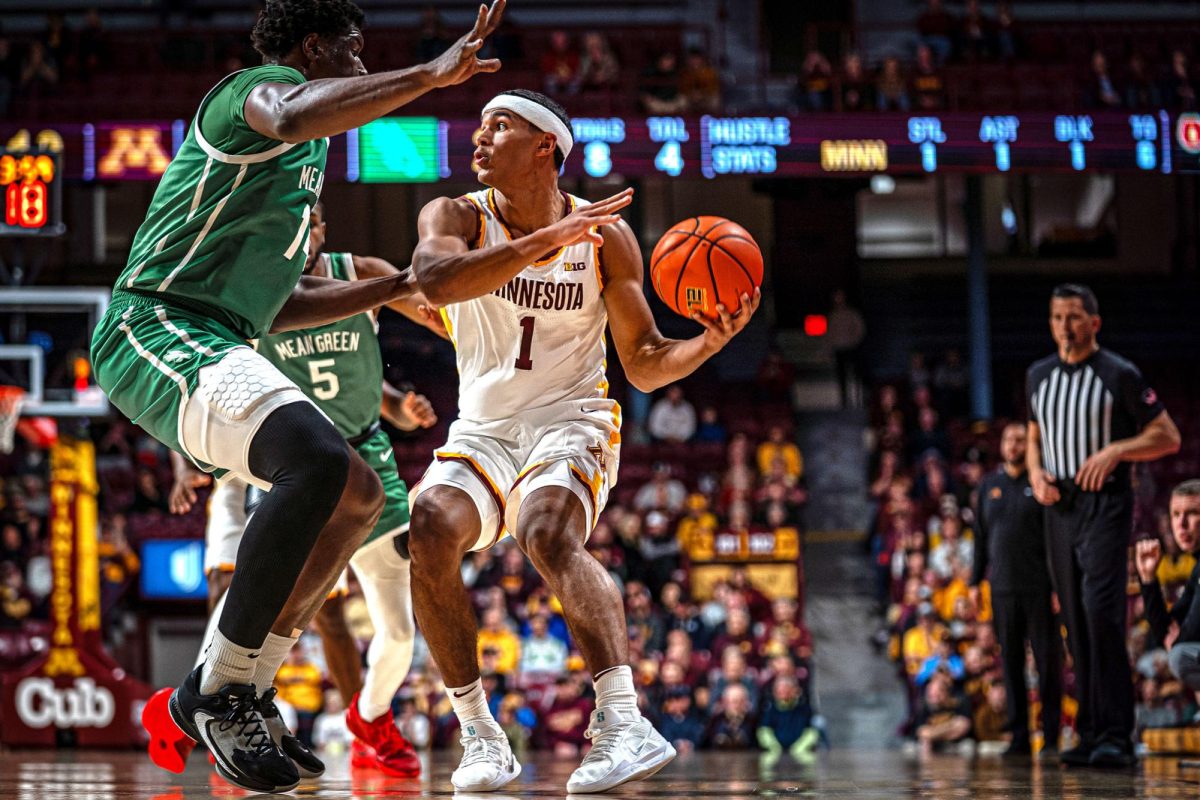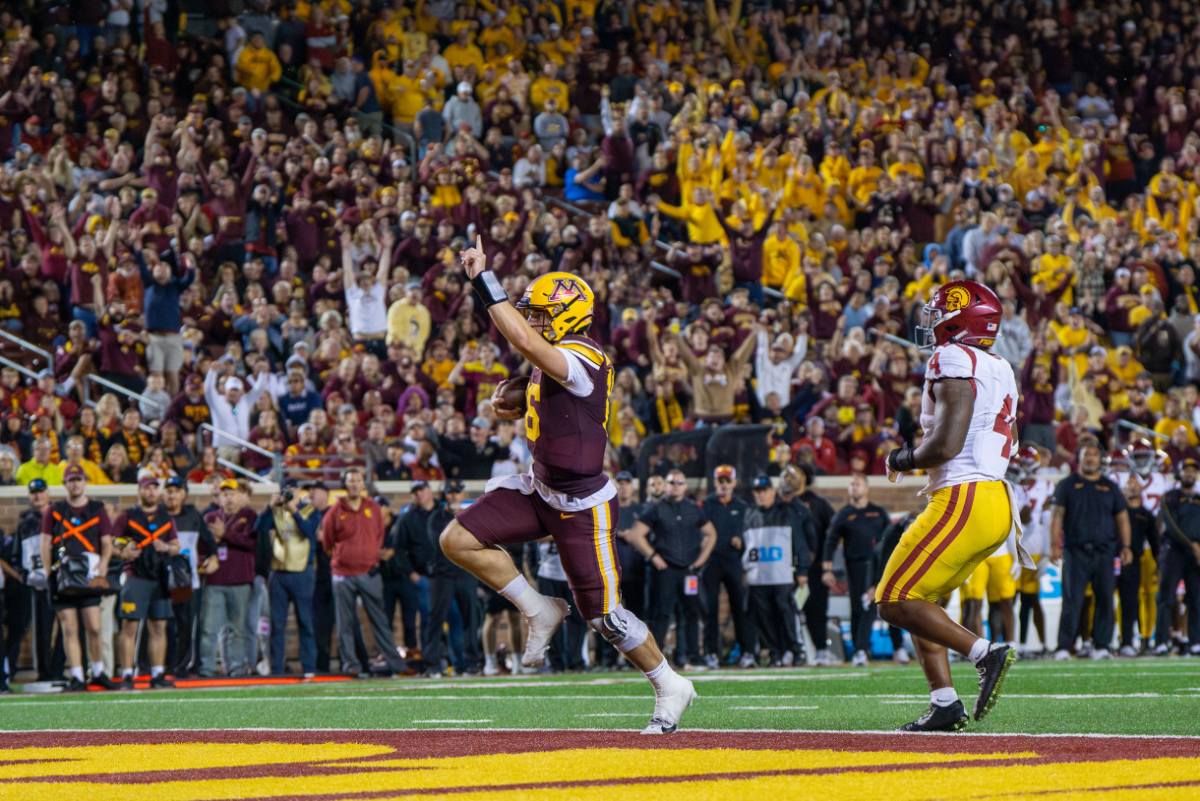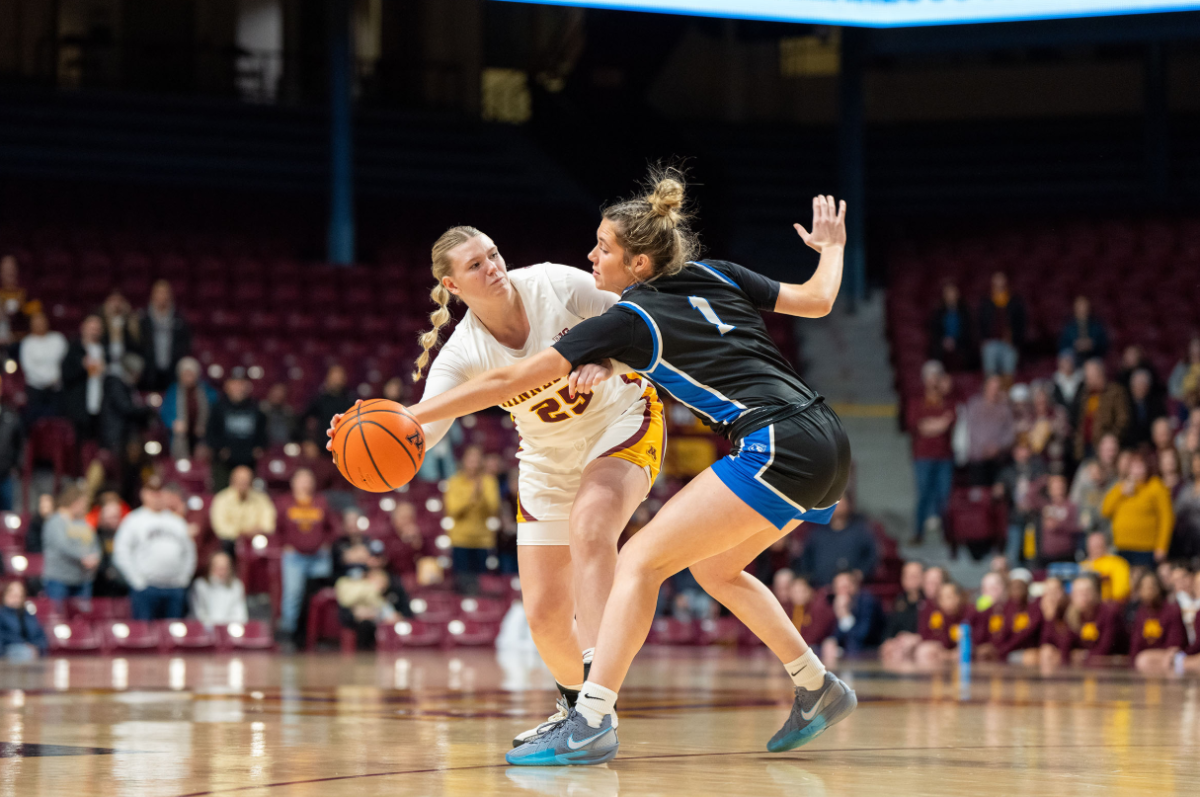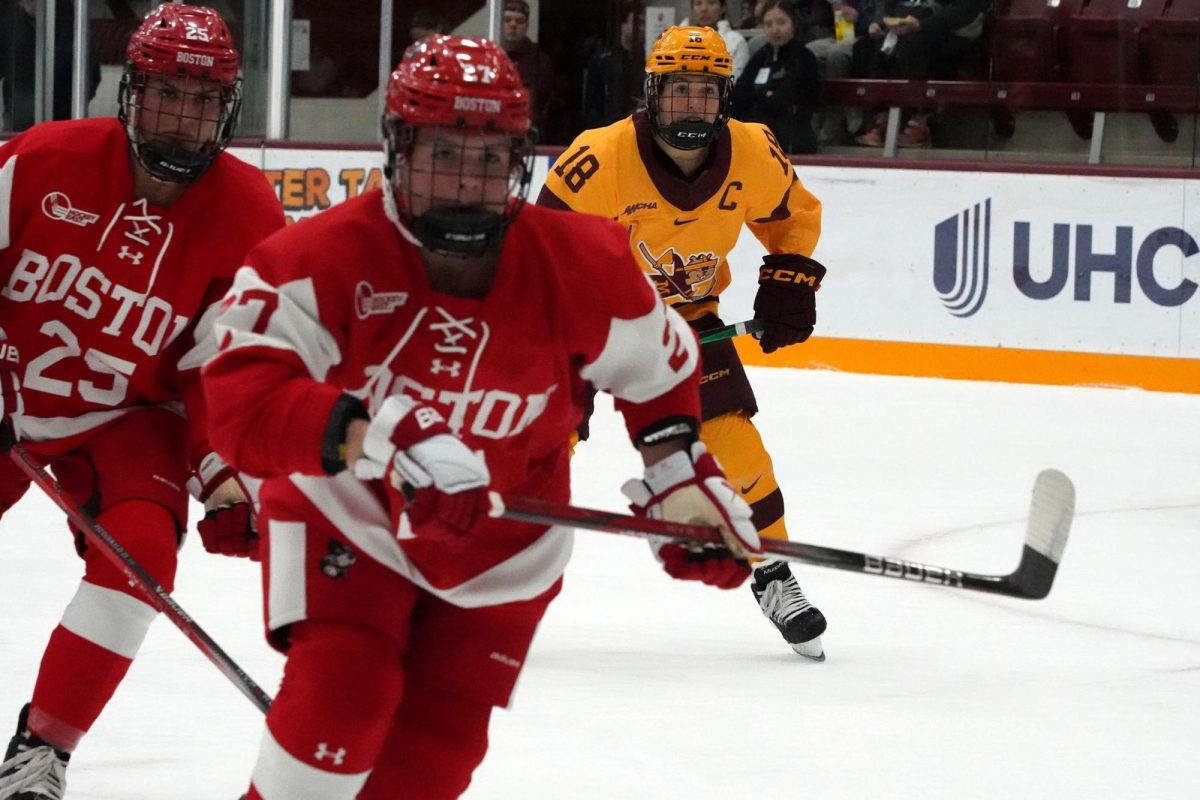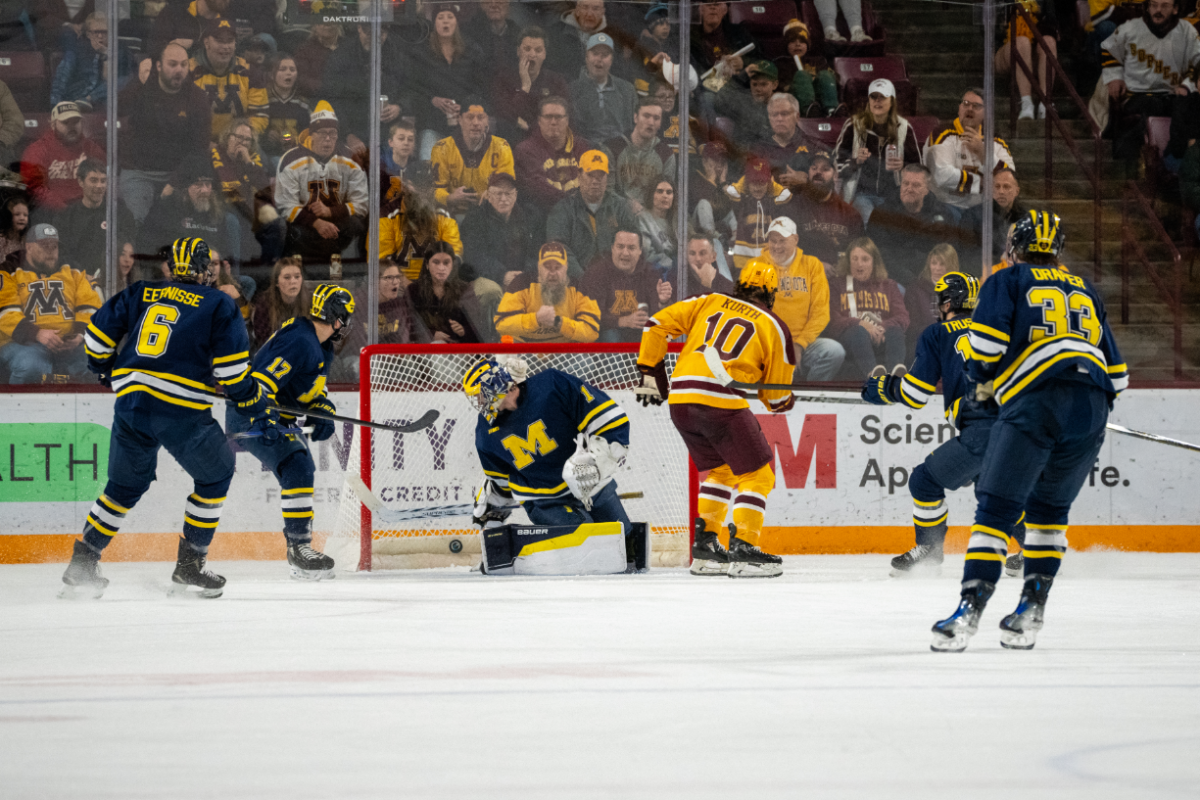During her freshman year, sophomore soccer defender Lisa Berg felt a shooting pain in her right knee during practice.
“I knew something was wrong, so I stopped playing,” Berg said.
Berg tore her anterior cruciate ligament, or ACL, which connects the tibia to the femur. After surgery, it took her more than a year to fully recover.
On Monday night, University experts gathered to discuss the prevalence of knee injuries among female athletes. Research shows that women, particularly those who play soccer and basketball, are more likely to suffer knee injuries.
The discussion was part of the Distinguished Lecture series sponsored by the University’s Tucker Center for Research on Girls and Women in Sport.
Dr. Elizabeth Arendt, a department of orthopedic surgery faculty member, spoke at the event. She said no one knows exactly why women suffer ACL injuries at a higher rate than men, but arguments typically fall into three categories: hormonal, anatomical and neuromuscular differences between men and women.
Arendt said she believes the neuromuscular, or how muscles respond to information received from the brain, argument deserves the most attention.
“The body control men have is on average greater than women’s,” Arendt said.
At the lecture, Sara Wiley, associate director for strength and conditioning at the University, provided a firsthand account of her experience with female athletes suffering from knee injuries.
Wiley and her colleagues assess the mechanics of athletes’ movements, identify what needs to be corrected and write programs for athletes that are geared toward injury prevention.
“Of all the factors (contributing to ACL injuries) out there, the only thing we can control is the training and what we can do to minimize risk,” Wiley said.
Jen Chelton is the main trainer for the Gophers soccer and softball teams. She said she sees about one ACL injury every other year within the soccer program. When other players on a sports team have suffered an injury, Chelton said, they act as a support network to other injured players.
Berg, who Chelton trained, said she was comforted knowing other players had gone through similar experiences.
“I maintained motivation by watching others go through it,” she said.
Moira Novak, the head athletics trainer at the University, works with the women’s basketball team. She said that after recovering from knee injuries, many athletes have anxiety about getting back into difficult athletic moves.
“Some athletes question whether they’ll ever really be able to get back into the sport again,” Novak said. “They need a lot of reassurance and help along the way.”
Berg remembered the anxiety she experienced when returning to practice.
“I was scared every time I went to touch the ball,” Berg said. “I had to remember that my body could do it.”


